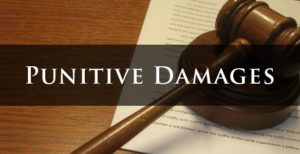 KPitch intervened in a lawsuit and obtained a temporary injunction against FSD. FSD appealed the injunction and sought mandamus relief against the intervention. KPitch then nonsuited the claims that were the basis for the injunction, and the Fifth Court agreed with KPitch that this action made the appellate proceedings moot. FSD argued that the appeal should proceed because KPitch had refiled the claims in an improper effort to obtain a severance, but the Court did not see this argument as creating an exception to the general rule about the effect of a nonsuit. Frisco Square Developers LLC v. KPitch Enterprises, LLC, No. 05-16-00992-CV (June 22, 2017) (mem. op.)
KPitch intervened in a lawsuit and obtained a temporary injunction against FSD. FSD appealed the injunction and sought mandamus relief against the intervention. KPitch then nonsuited the claims that were the basis for the injunction, and the Fifth Court agreed with KPitch that this action made the appellate proceedings moot. FSD argued that the appeal should proceed because KPitch had refiled the claims in an improper effort to obtain a severance, but the Court did not see this argument as creating an exception to the general rule about the effect of a nonsuit. Frisco Square Developers LLC v. KPitch Enterprises, LLC, No. 05-16-00992-CV (June 22, 2017) (mem. op.)
Monthly Archives: June 2017
 Twice in one week, the Fifth Court affirmed substantial awards of exemplary damages. I anticipate posts in the days ahead about the details of these cases, but for now, simply note these important holdings:
Twice in one week, the Fifth Court affirmed substantial awards of exemplary damages. I anticipate posts in the days ahead about the details of these cases, but for now, simply note these important holdings:
- Bombardier Aerospace Corp. v. SPEP Aircraft Holdings LLC, No. 05-16-00086-CV (June 22, 2017) (mem. op.), a case about the condition of an expensive private jet, affirmed “a verdict in appellees’ favor on both claims and awarded $2,694,160 in actual damages and $5,388,320 in exemplary damages,” and
- Wells Fargo Bank, N.A. v. Militello, No. 05-15-01252-CV (June 20, 2017) (mem. op.) affirmed (after a remittitur) an award of approximately $2.7 million and roughly $1 million in actual damages.
 A famous Shakespeare poem laments: “What win I, if I gain the thing I seek?
A famous Shakespeare poem laments: “What win I, if I gain the thing I seek?
A dream, a breath, a froth of fleeting joy. . . . ” These thoughts could also be the lament of the landlord / appellee in Analytical Technology Consultants v. Axis Capital, who obtained a summary judgment against a tenant in default on a lease. Unfortunately, while the tenant did not respond to the summary judgment motion, it pointed out in a motion for new trial that the landlord had failed to include a credit against the accelerated balance as required by the lease’s remedies provision. The landlord sought to preserve its judgment on appeal by pointing to the evidence it submitted in response to the motion for new trial, which it said included the relevant calculation, but the Fifth Court disagreed: ” An attachment to a motion for new trial is not evidence. To constitute evidence, the attachment must be introduced at the hearing on the motion for new trial. If there is no hearing, then the document never becomes evidence.” (citations omitted). No. 05-16-00281-CV (June 19, 2017) (mem. op.)
In the department of “ra re bird sightings,” the case of Hollingsworth v. Walaal Corp. involved an appeal, under the newly-revised Texas Rule of Civil Procedure 145, to a trial court order requiring an appellant to pay for a reporter’s record. The appellant filed an affidavit of inability to pay costs and the trial court had an evidentiary hearing on the appellees’ challenge to it. Recognizing that the appellant did not offer tax returns or the like, the Fifth Court reversed, finding that his “testimony was uncontroverted” and that “[a]lthough the trial court was required to evaluate Hollingsworth’s credibility, the trial court was not free to completely disregard the only evidence establishing his inability to pay costs when no evidence was offered in rebuttal.” No. 05-17-00555-CV (June 9, 2017) (mem. op.)
re bird sightings,” the case of Hollingsworth v. Walaal Corp. involved an appeal, under the newly-revised Texas Rule of Civil Procedure 145, to a trial court order requiring an appellant to pay for a reporter’s record. The appellant filed an affidavit of inability to pay costs and the trial court had an evidentiary hearing on the appellees’ challenge to it. Recognizing that the appellant did not offer tax returns or the like, the Fifth Court reversed, finding that his “testimony was uncontroverted” and that “[a]lthough the trial court was required to evaluate Hollingsworth’s credibility, the trial court was not free to completely disregard the only evidence establishing his inability to pay costs when no evidence was offered in rebuttal.” No. 05-17-00555-CV (June 9, 2017) (mem. op.)
The Dallas Morning News reports the recent death of former Dallas Court of Appeals Justice David Lewis, who resigned from that Court last year to combat alcoholism and depression. The story sounds a warning note for all in the legal profession about the importance of mental health.
 Dahlheimer sought a writ of injunction in the court of appeals to stay proceedings involving a receivership about the sale of a home. The Fifth Court found that it lacked jurisdiction, noting that its injunctive power is limited to “jurisdiction over the subject matter of a pending appeal,” and that “[t]he power to grant a temporary writ of injunction to prevent damages which would otherwise flow to alitigant who has an apppeal pending rests exclusively with the trial court.” In re Dahlheimer, No. 05-17-00556-CV (June 8, 2017) (mem. op.)
Dahlheimer sought a writ of injunction in the court of appeals to stay proceedings involving a receivership about the sale of a home. The Fifth Court found that it lacked jurisdiction, noting that its injunctive power is limited to “jurisdiction over the subject matter of a pending appeal,” and that “[t]he power to grant a temporary writ of injunction to prevent damages which would otherwise flow to alitigant who has an apppeal pending rests exclusively with the trial court.” In re Dahlheimer, No. 05-17-00556-CV (June 8, 2017) (mem. op.)
 A quick reminder on summary judgment procedure appears in Autosource Dallas LLC v. Addison Aeronautics LLC:
A quick reminder on summary judgment procedure appears in Autosource Dallas LLC v. Addison Aeronautics LLC:
- “A movant is required to provide twenty-one days’ notice when setting a summaryjudgment. This twenty-one day requirement is designed to give
the nonmovant sufficient time to prepare and file a response for the original setting.” - “The twenty-one-day notice requirement does not however apply to a resetting of the hearing, so long as the nonmovant received twenty-one days’ notice of the original hearing.”
- For a recheduled hearing, the movant “needed only to give reasonable notice that the hearing on its summary judgment had been rescheduled. Reasonable notice means at least seven days before the hearing because a nonmovant
may only file a response to a motion for summary judgment not later than seven days prior to the date of the hearing without leave of court.”
No. 05-16-00838-CV (June 9, 2017) (mem. op.)
The high-profile mandamus case of In re: Paxton provides a general reminder about geographic bounds on Texas trial courts: “Jurisdiction over the cases vested immediately in the Harris County district courts when respondent signed the transfer order. The Texas Constitution does not allow the 416th Judicial District Court to sit outside of the Collin County seat, McKinney, absent express statutory authority. Tex. Const. art. V, § 7. The only authority by which this may occur is [Code of Criminal Procedure] article 31.09, which requires consent of the parties. Thus, absent effective application of article 31.09, respondent may not continue to preside over the cases or utilize the services of the court reporter, court coordinator, or clerk of the court of original venue. Relator has unequivocally stated that he did not consent to respondent continuing to preside over the cases or otherwise acting in accordance with article 31.09, and no written consent appears in our record. Accordingly, under the plain language of the statute, respondent is without authority to continue to preside over the cases and is also without authority to issue orders or directives maintaining the case files in Collin County. Consequently, all orders issued by respondent after he signed the April 11, 2017 transfer order are void.” No. 05-17-00507-CV (May 30, 2017).
 Last Friday, the Texas Supreme Court denied mandamus relief in a high-profile dispute about the proper format in which to produce electronic records, but provided extensive guidance about the framework and factors that should decide such disputes, and remanded for reconsideration in light of that guidance. In a nutshell: “Under our discovery rules, neither party may dictate the form of electronic discovery. The requesting party must specify the desired form of production, but all discovery is subject to the proportionality overlay embedded in our discovery rules and inherent in the reasonableness standard to which our electronic-discovery rule is tethered. The taproot of this discovery dispute is whether production in native format is reasonable given the circumstances of this case. Reasonableness and its bedfellow, proportionality, require a case-by-case balancing of jurisprudential considerations,which is informed by factors the discovery rules identify as limiting the scope of discovery and geared toward the ultimate objective of “obtain[ing] a just,fair, equitable and impartial adjudication” for the litigants “with as great expedition and dispatch at the least expense . . . as may be practicable.” In re State Farm Lloyds, No. 15-903 (Tex. May 26, 2017).
Last Friday, the Texas Supreme Court denied mandamus relief in a high-profile dispute about the proper format in which to produce electronic records, but provided extensive guidance about the framework and factors that should decide such disputes, and remanded for reconsideration in light of that guidance. In a nutshell: “Under our discovery rules, neither party may dictate the form of electronic discovery. The requesting party must specify the desired form of production, but all discovery is subject to the proportionality overlay embedded in our discovery rules and inherent in the reasonableness standard to which our electronic-discovery rule is tethered. The taproot of this discovery dispute is whether production in native format is reasonable given the circumstances of this case. Reasonableness and its bedfellow, proportionality, require a case-by-case balancing of jurisprudential considerations,which is informed by factors the discovery rules identify as limiting the scope of discovery and geared toward the ultimate objective of “obtain[ing] a just,fair, equitable and impartial adjudication” for the litigants “with as great expedition and dispatch at the least expense . . . as may be practicable.” In re State Farm Lloyds, No. 15-903 (Tex. May 26, 2017).